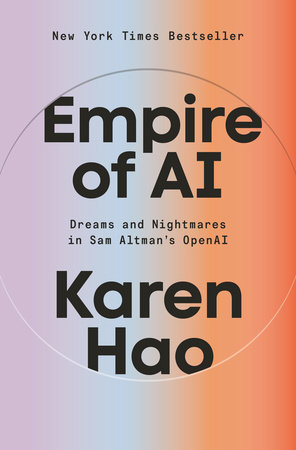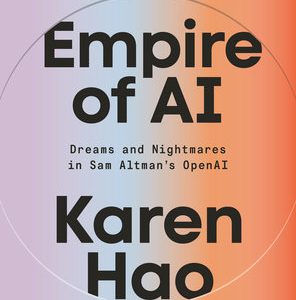
“The true cost of artificial intelligence isn’t just measured in computational power—it’s measured in human dignity, environmental impact, and the concentration of power in the hands of a few.” – A central theme from Empire of AI
What happens when the promise of revolutionary technology collides with corporate ambition, secrecy, and the relentless pursuit of artificial general intelligence? In her meticulously researched exposé, Empire of AI: Dreams and Nightmares in Sam Altman’s OpenAI, award-winning journalist Karen Hao pulls back the curtain on one of the most influential companies shaping our technological future. Drawing from interviews with around 260 people, correspondence, and relevant documents, Hao delivers what critics are calling “an essential account of how OpenAI and ChatGPT came to be and the catastrophic places they will likely take us.”
Hao’s book focuses on the history of OpenAI and its culture of secrecy and devotion to the promise of artificial general intelligence (AGI), but it goes far deeper than corporate history. Having been among the first journalists to gain access to OpenAI in 2019, Hao brings an insider’s perspective to what she argues is a fundamentally flawed approach to AI development. The title itself is intentional—making reference to colonial empires of the 1800s—suggesting that today’s AI companies operate with similar patterns of exploitation and resource extraction, but on a global digital scale.
What makes Hao’s critique particularly compelling is her focus on the human cost of AI progress. She argues that AI companies don’t have to choose between exploiting workers and chasing growth, challenging the tech industry’s narrative that rapid advancement necessarily requires sacrificing worker dignity and environmental sustainability. The book reveals how the race for AGI has created what critics describe as “a cult of genius” that prioritizes technological achievement over ethical consideration of its broader impacts.
Rather than simply condemning AI development, Hao presents a vision for alternative approaches. She argues that this route to AI development is not the only way, offering readers hope that we can shape a different future—one where technological progress serves humanity rather than subjugating it. The book serves as both warning and call to action, reminding us that the choices we make today about AI governance and development will determine whether artificial intelligence becomes a tool of liberation or oppression.
Are we willing to examine the true cost of our technological dreams? And more importantly, are we prepared to demand better from the companies shaping our digital future?
“The question isn’t whether AI will transform our world—it’s whether we’ll have any say in how that transformation unfolds.”

